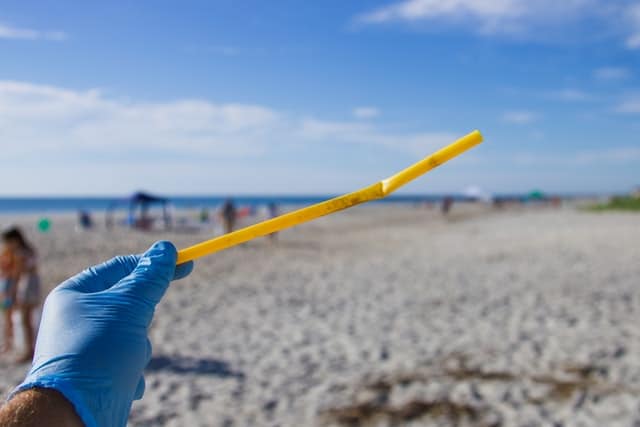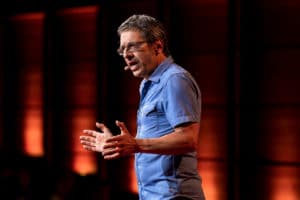
Paper Straws Are Not Enough
By Robert Hunziker
As the UK suffered its hottest-ever temperatures only recently, Amy Goodman, host of Democracy Now, interviewed Britain’s erudite environmental journalist George Monbiot July 21, 2022 about his most recent article in The Guardian: This Heatwave Has Eviscerated The Idea That Small Changes Can Tackle Extreme Weather, July 18, 2022.
According to Monbiot: “Paper straws are not enough. Only System Change can halt the climate crisis.” Of course, System Change can only mean throwing out the neoliberal brand of capitalism in favor of almost anything else.
Adam Smith would be spinning in his grave with today’s crony capitalism. Interestingly, “the term ‘capitalism’ appears nowhere in Smith’s writings.” (Source: Jesse Norman, Adam Smith, Penguin Random House/UK 2018, pgs. 265-66)
According to Jesse Norman, former Financial Secretary to the UK Treasury, 2019-2021 and Member of Parliament since 2010: “The real Adam Smith was (a) not an advocate of self-interest (b) did not believe rational behavior was constituted solely by the pursuit of profit (c) was not a believer in laissez-faire (d) was not pro-rich (e) was not anti-government.”
In other words, Adam Smith is/was the antithesis of today’s brand of neoliberal capitalism, and oh yes, (f) “far from glorifying consumption for its own sake, Smith deprecated it.”
Everything that Smith was against is found in neoliberalism today, especially the failure to protect and benefit the common good.
Today’s capitalism couldn’t fix climate change if its existence depended upon it, which it does, as self-interest looks elsewhere far beyond the common good or welfare.

George Monbiot echoes Adam Smith in many respects. Like Smith, Monbiot has been recognized and awarded by his contemporaries, recently winning the Orwell Prize for Journalism 2022 for his article: Capitalism is Killing the Planet – it’s Time to Stop Buying into our Destruction, The Guardian, October 30, 2021.
Capitalism is Killing… is a scathing critique of how we’re dealing with the climate crisis by focusing on what he terms micro consumerist ballocks.
Monbiot explains: What we’re collectively saying as environmentalists is that we’re facing the biggest existential crisis humanity has ever faced, a potential collapse of our life support systems, the domino effect as one earth system pulls down another until habitable space on the planet collapses into a state from which we did not evolve.
In response, environmentalists are saying we want to use less plastic bags, and replace plastic shafts with paper shafts, and stop using plastic straws. Essentially, the environmental movement has been calling for micro solutions to solve macro problems. The upshot is a very low threshold for people to get involved in this way of thinking. In turn, it creates a mindset that believes “we cannot possibly have such a big problem if the solutions are so tiny.” People continue to whistle whilst they work with nothing too serious to care about. Micro consumerist ballock is the dominant narrative within the media and amongst environmental orgs.
However, “incremental change can never develop the transformation which is required… it just does not deliver.” The only way to deliver quickly and effectively is by radical system change.
Meanwhile, as environmentalists have been messing around with micro fixes, the global Right has instituted insurgency and has achieved system change that’s tearing down democracy, tearing down equality before the law, tearing down basic rights, human rights, regulations, and taxes, ripping down everything, and changing the system to suit billionaires, oligarchs, and predatory corporations. They have proven that it’s possible to achieve system change. They’ve done it!
The Right has executed the biggest system change in American history, while the Left’s timidity and failure to demand system change chokes in the dust as a big part of why we collectively are stuck where we are, and why almost no effective broad based measures to address the greatest crisis of all time have been instituted.
Meanwhile, what we really truly want is “private sufficiency with public luxury.” Meaning people have their own home base with necessities, which is private sufficiency. Then, for luxury we collectively pursue it in the public domain as public luxury.
Whereas luxury-for-all is a huge indomitable challenge. “There is not enough physical or ecological space for everybody to pursue private luxury.” For example, if everyone has a private jet and a big luxury car and overly spacious home, that’s planet-gone (devastation) within hours. We’d burn through everything in a flash of time.” If everyone in London had a swimming pool and tennis court and art collection, the city would physically need to be as big as all of Europe to accommodate it all. Where would everybody else in Europe go to live?
There simply is not enough planet space for everybody to be a billionaire, but there is enough space for public luxury, e.g. public swimming pools and public tennis courts and public health service and public transport, which creates space for people by sharing resources on a per capita basis that is manageable.
Kate Rayworth’s Doughnut Economics (Random House, 2017) outlines such a life style where we all live within planetary boundaries but above welfare boundaries. The message is clear that mitigation of the climate crisis requires an ecological civilization with participatory democracy, once again.
The Left’s blatant failure to openly call for system change is its biggest failing and quite the opposite of the Right’s success with system change, leaving the Left speechless and coughing and wheezing in an effortless cloud of dust. The Left has never learned to fight by taking off the gloves, bare-knuckled.
In Montbiot’s book Regenesis, Feeding the World Without Devouring the Planet, Penguin Random House 2022, he looks at the world via a global prism. Therein, he discovers that it is as important to stop animal agriculture as it is to leave fossil fuels in the ground.
According to Monbiot, “the great majority of people have got to stop eating animals.” It is a primary driver of environmental destruction, a major cause of habitat loss, of wildlife loss, of extinction, of abusive land use, of fresh water overuse, of soil degradation, a major cause of climate breakdown and of water pollution and air pollution. Animal agriculture is at the top of the list along side fossil fuels as the planet’s biggest drivers of mass destruction.
Monbiot says plant-based diets are far better than animal agricultural diets, but he feels society can go much further than that with new technologies, including fermentation, which produces a protein-rich food from single-cell organisms or microbes that are essentially brewed. It is a process that can be done anywhere. No need for fertile land or chemicals or using massive quantities of water. It is also an avenue to break away from multinational corporations that control global trade, e.g. four corporations control 90% of the global grain trade, which is essentially a long and highly vulnerable food chain.
Of concern, the global food system has lost its resilience, and it’s starting to approach the deplorable state of the financial system in 2008. Threateningly, the global food system has switched from stocks to flows. Basically our global food reserves are floating at sea in container ships. The dangers are legion.
To mitigate the climate crisis, precision fermentation offers an opportunity to break the hold of four corporations controlling the world’s food system, as well as offering release of the all-powerful destructive tension hitting ecosystems throughout the world that are fast approaching a Big Snap!
Examples of Fermentation
In response to a question about fermentation examples, the following comes from an article of mine some time ago:
The not-so-secret formula to better, tastier, cheaper, healthier, more prevalent food is the production of microorganisms. Already over past centuries humanity has shown the value of controlling microorganisms through fermentation, producing bread, cheese, alcohol, as well as preserving fruit and vegetables.
“Moving food production to the molecular level promises a more efficient means of feeding ourselves and the delivery of superior, cleaner nutrients without the unhealthy chemical/antibiotic/
The capability to create foods with exact attributes of nutrition, structure, taste, and texture is advancing whereby ordering food will be similar to installing software on your phone but via databases of engineered molecules, as fermentation farms displace factory farms.
Impossible Foods is an example that utilizes fermented (heme) to create a higher-performing product. (Source: A Rainbow of Opportunity: How Fermentation Biotech is Creating “Agricultural 2.0”, Food Navigator, March 25, 2021)
Robert Hunziker is a freelance writer and environmental journalist whose articles have been translated into foreign languages and published in over 50 journals, magazines and sites worldwide.
This article was originally published on July 25, 2022 © Counterpunch
Robert Hunziker lives in Los Angeles and can be reached at rlhunziker@gmail.com.